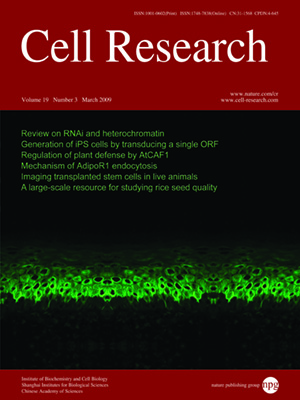
Volume 19, No 3, Mar 2009
ISSN: 1001-0602
EISSN: 1748-7838 2018
impact factor 17.848*
(Clarivate Analytics, 2019)
Volume 19 Issue 3, March 2009: 380-391
ORIGINAL ARTICLES
Studies on rice seed quality through analysis of a largescale T-DNA insertion population
Fang-Fang Fu*, Rui Ye*, Shu-Ping Xu, Hong-Wei Xue
National Key Laboratory of Plant Molecular Genetics, Institute of Plant Physiology and Ecology, Shanghai Institutes for Biological Science (SIBS), Chinese Academy of Sciences, 300 Fenglin Road, Shanghai 200032, China
Correspondence: Hong-Wei Xue(hwxue@sibs.ac.cn)
A rice (Oryza sativa) T-DNA insertion population, which included more than 63 000 independent transgenic lines and 8 840 identified flanking sequence tags (FSTs) that were mapped onto the rice genome, was developed to systemically study the rice seed quality control. Genome-wide analysis of the FST distribution showed that T-DNA insertions were positively correlated with expressed genes, but negatively with transposable elements and small RNAs. In addition, the recovered T-DNAs were preferentially located at the untranslated region of the expressed genes. More than 11 000 putative homozygous lines were obtained through multi-generations of planting and resistance screening, and measurement of seed quality of around half of them, including the contents of starch, amylose, protein and fat, with a nondestructive near-infrared spectroscopy method, identified 551 mutants with unique or multiple altered parameters of seed quality. Analysis of the corresponding FSTs showed that genes participating in diverse functions, including metabolic processes and transcriptional regulation, were involved, indicating that seed quality is regulated by a complex network.
Cell Research (2009) 19:380-391. doi: 10.1038/cr.2009.15; published online 17 February 2009
FULL TEXT | PDF
Browse 2020


